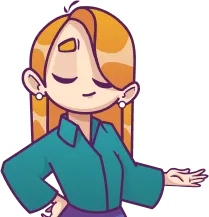
Narrative Poem
Assessment
•
Miranda Figueroa
•
English
•
7th Grade
•
12 plays
•
Medium
Improve your activity
Higher order questions
Match
•
Reorder
•
Categorization
.svg)
actions
Add similar questions
Add answer explanations
Translate quiz
Tag questions with standards
More options
9 questions
Show answers
1.
Multiple Choice
Narrative Poem
a short rhyming poem with 14 lines. The form remained largely unknown until it was found and developed by writers such as Shakespeare. Sonnets use iambic meter in each line and use line-ending rhymes.
a five-line witty poem with a distinctive rhythm. The first, second and fifth lines, the longer lines, rhyme. The third and fourth shorter lines rhyme. (A-A-B-B-A)
A poem which tells a story, similarly to a narrative, that can rhyme but does not need to
Ancient form of poem writing is renowned for its small size as well as the precise punctuation and syllables needed on its three lines. It is of ancient Asian origin.
2.
Multiple Choice
A narrative poem written in four-line stanzas, characterized by swift action and narrated in a direct style. OR A poem similar to a folk tale which uses a repeated refrain. This means that every few stanzas a portion of the poem is repeated, much like a song.
Ballad
Epic
Idyll
Lay
3.
Multiple Choice
A long narrative poem, written in heightened language, which recounts the deeds of a heroic character who embodies the values of a particular society
Lay
Ballad
Idyll
Epic
4.
Multiple Choice
An idyll speaks of someone or something in a way that it should be idolized. For example, today many stories of Ghandi or Martin Luther King, Jr. could be written about in an idyll. However, an even better example could be George Washington.
Idyll
Epic
Ballad
Lay
5.
Multiple Choice
A long poem which was sung by medieval minstrels. The long poems generally were about the news of the day or historical facts they wished to be passed along throughout the countryside.
Epic
Idyll
Lay
Ballad
6.
Multiple Choice
Many Narrative Poems Are........
Performance pieces
old
new
made in the 17th century

Explore this activity with a free account
Find a similar activity
Create activity tailored to your needs using
.svg)

Poetry
•
3rd Grade

Poetry Elements
•
3rd - 6th Grade

Types of Poems
•
5th - 6th Grade

Figurative Language
•
5th - 8th Grade

Poetry Vocabulary
•
6th - 8th Grade

Rhyming Words
•
2nd Grade

Elements of Poetry
•
4th Grade

Poetry and Sound Devices
•
7th - 8th Grade